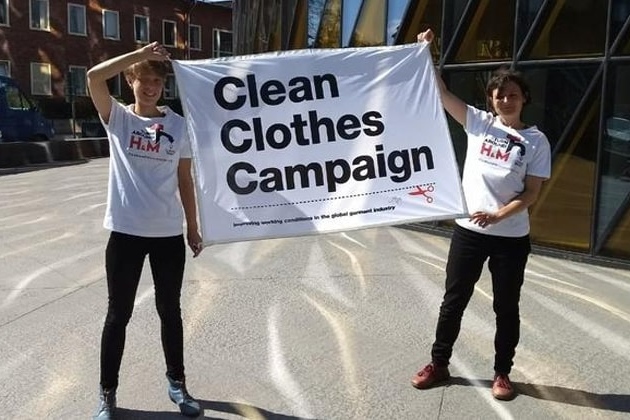

Clean-Clothing-Campaign
The Clean Clothes Campaign’s (CCC) Fashion Checker website provides garment workers, activists, and consumers access to data on where clothing is made and the working conditions in which it was produced.
As employees, unions, and campaigners call on firms not to “leave workers in destitution” during the pandemic, new data on the Fashion Checker website indicates that transparency remains critical to holding brands accountable.
It also demonstrates that just a small percentage of the surveyed brands improved their transparency score. Despite their vows to protect labor rights in their supply chains, CCC alleges that all of the examined companies failed to ensure that workers in their supply chain received their pre-pandemic pay, let alone living wages, throughout the pandemic.
The revised Fashion Checker data, which was gathered in partnership with Fashion Revolution, focuses on transparency and indicates that 159 firms (60%) received a 1 or 2-star rating, indicating that they do not adhere to the Transparency Pledge.
46 out of 264 brands (17%) score five stars, indicating that they provide additional information on their supply chain, such as whether or not there is a union in the workplace.
Fashion Checker will be presented at the UNECE-SDA BOCCONI Event on Accelerating action on sustainability and circularity in the garment and footwear sector with technologies that deliver on due diligence and informed consumer choice in Milan, Italy.
According to CCC, this is the first in a series of events aimed at giving industry stakeholders the tools they need to promote sustainable action and progress toward circular economy methods on a national, regional, and global scale.
The regional workshop is co-organized by the United Nations Economic Commission for Europe (UNECE) and the SDA Bocconi School of Management and is part of the project “Enhancing Traceability and Transparency for Sustainable and Circular Value Chains in Garment and Footwear,” which is being implemented in collaboration with the United Nations’ International Trade Centre (ITC).
CCC said that many companies make promises and claims about respecting employees’ rights and providing living wages, but without transparency, these promises and claims remain simple claims, and workers, unions, and civil society organizations are unable to hold brands accountable to their pledges. The lack of transparency shows the necessity for comprehensive human rights due diligence legislation once again. Such legislation is currently being discussed at the EU level as well as in other European nations, which is encouraging.
CCC adds that however, transparency must be a part of such law. It will be incredibly impossible to monitor the legislation’s execution without transparency. Transparency is also an important aspect of the accountability necessary in the HRDD process.
Paul Roeland, CCC’s transparency coordinator, said that brands must cease disguising their supply chains. Their clothing is manufactured by genuine people who have been affected by the pandemic. When workers’ rights are violated, they need to know where to turn for help. And customers have a right to know where and how their clothes are made.
Twintex, a pioneer in sustainability within the garment industry, is advancing circular fashion with the launch of its Sustainable Spring/Summer…
Researchers have launched DyeLoop – Circular Technologies for Textile Dyeing, an initiative aimed at making textile dyeing more cost-effective and…
Hugo Boss has introduced Eightyards, a wholly-owned subsidiary based in Metzingen, Germany, dedicated to reselling, reusing, and upcycling surplus textiles.
Nanamica unveils its second collection featuring Brewed Protein fibers, an innovative plant-derived material created through microbial fermentation.
Warwick researchers, in collaboration with CreateMe Technologies, have developed a thermo-reversible adhesive, enhancing textile recycling and sustainability.
The French Parliament is poised to approve a ground-breaking environmental bill that limits the production and sale of goods containing…